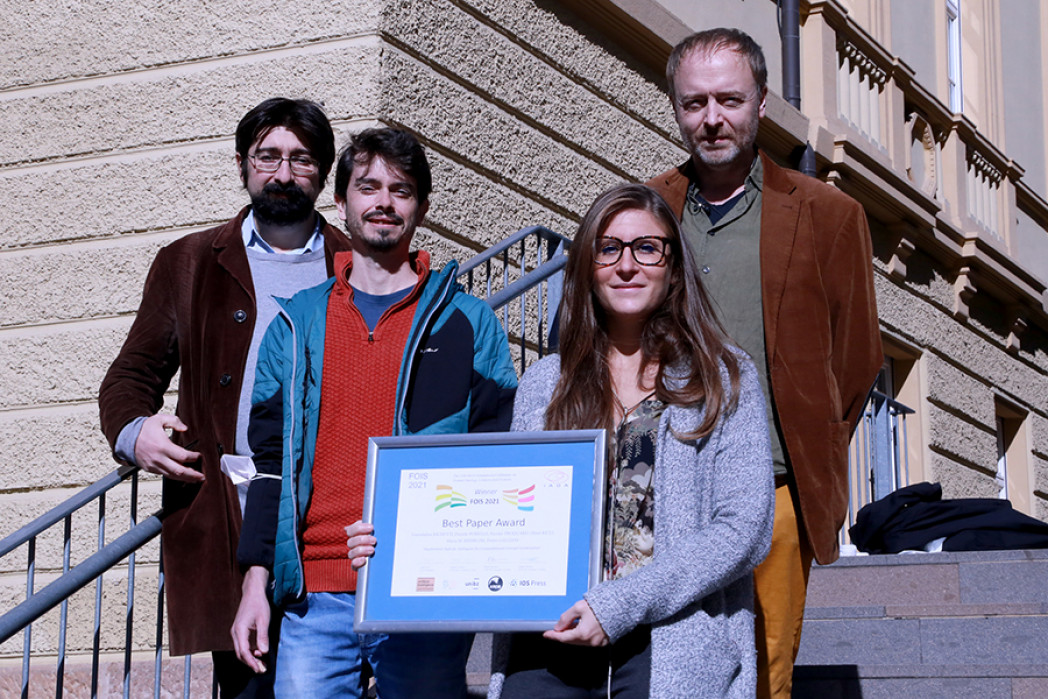
A computer walks into a cafe disco
#bestpaper: Did you ever ask yourself how a computer could distinguish a ‘cafe disco’ from a ‘disco cafe’? A paper on “Asymmetric Hybrids” discusses conceptual and algorithmic ideas providing a solution.
Meredith: This is like a haunted coffeehouse thing?
Michael: No. Dwight is confusing you. That - it’s, it’s more of a disco.
Andy: It’s like a haunted disco.
Michael: ... with coffee but without the haunted.
Phyllis: It’s a combo dance house coffee bar.
Michael: It’s a daytime disco on the ground floor of an industrial office building.
Erin: It’s a cafe disco.
Michael: Exactly.
Kevin: So, like, a disco cafe?
Michael: Wha - No. No. Not even close.
A conversation like this, taken from the sitcom ‘The Office’ (Season 5, “Cafe Disco”), illustrates how tricky computational concept combinations can be. At the conference FOIS 2021 (Formal Ontology in Information Systems) the paper 'Asymmetric Hybrids: Dialogues for Computational Concept Combination’ was awarded with the best paper award. “I am very pleased and honored that our group's interdisciplinary work was recognised at this conference, as it is the most important in ontology research” underlines the lead author Guendalina Righetti, Ph.D. student at the Faculty of Computer Science at unibz. The group includes unibz researchers Nicolas Troquard, Oliver Kutz and Pietro Galliani, together with Maria Hedblom (University of Jönköping, Sweden) and Daniele Porello (University of Genova).
The award-winning research, at the intersection of Computing, Linguistics and Cognitive Science, focuses on instructing machines and AIs how to combine ideas and concepts to form new concepts, such as `fish vehicle’, ‘cafe disco’, and ‘disco cafe’. In particular the German language is known for having a lot of compound nouns, e.g. the word “Handschuh”, a combination of the two words `Hand’ and `Schuh’. The question is, if a computer already knows what a `hand’ and a `shoe’ are, how could and should it assemble the meaning of ‘glove’, or `Handschuh’ in German? Questions like these were discussed at the FOIS conference by researchers with an interest in formal ontology. Formal ontology is the systematic study of the types ofentities and relations making up the domains of interest represented in modern information systems. The conference held in Bolzano in September 2021 wanted to be a nexus of interdisciplinary research and communication, including researchers from many domains engaging with formal ontology, from conceptual modeling, database design to computational linguistics or life science and many more.
FOIS is the flagship conference of the International Association for Ontology and its Applications (IAOA), which is a non-profit organization promoting interdisciplinary research and international collaboration in formal ontology.
In the picture (unibz) from left: Pietro Galliani, Nicolas Troquard, Guendalina Righetti and Oliver Kutz.
(vic)